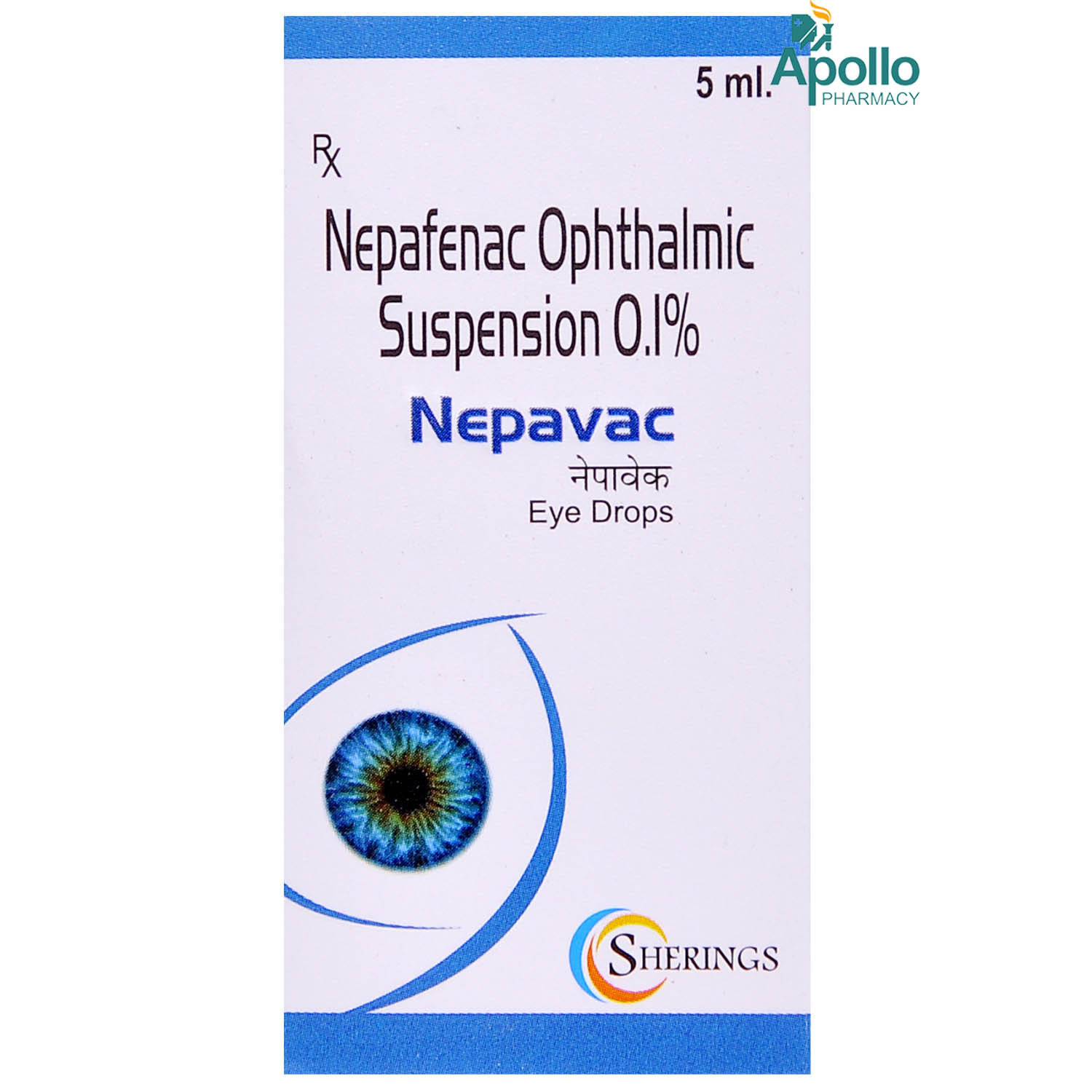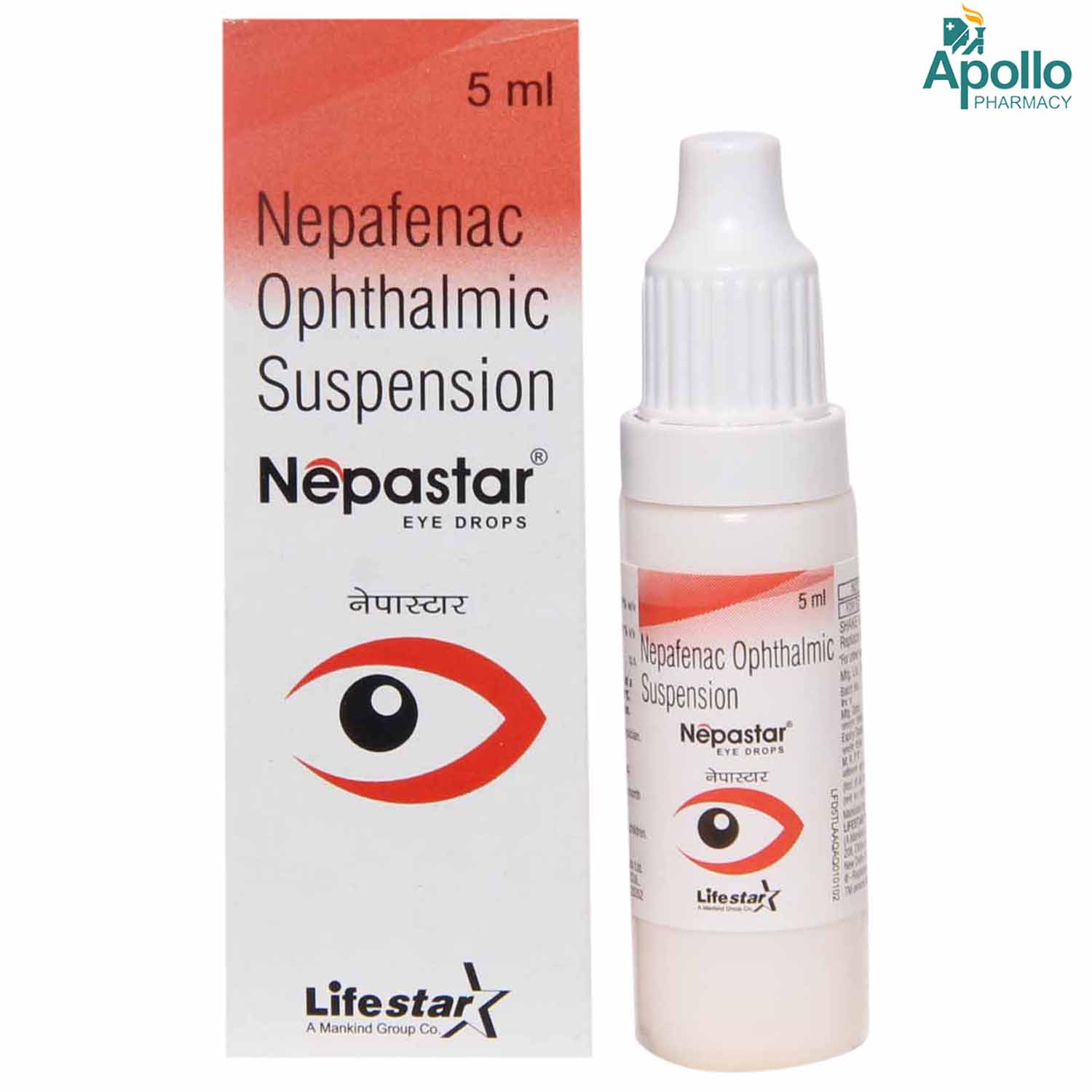Retinep 0.1%W/V Eye Drops 5ml

MRP ₹181
(Inclusive of all Taxes)
₹27.1 Cashback (15%)
know your delivery time
Provide Delivery Location
Composition :
Manufacturer/Marketer :
Consume Type :
Expires on or after :
Return Policy :

Secure Payment

Trusted by 8 Crore Indians

Genuine Products
Therapeutic Class
Country of origin
Manufacturer/Marketer address
Disclaimer
Alcohol
Safe if prescribed
One should avoid consuming alcohol as it is unknown this drug interacts with alcohol or not.
Pregnancy
Consult your doctor
During pregnancy, Retinep 0.1%W/V Eye Drops 5ml can only be used when prescribed during the first 6 months by the doctor. This medicine can not be used during the last 3 months of pregnancy as it may harm to a fetus.
Breast Feeding
Consult your doctor
Retinep 0.1%W/V Eye Drops 5ml can only be used in breastfeeding women if suggested by the doctor as it is unknown whether this drug passes into breast milk.
Driving
Safe if prescribed
Retinep 0.1%W/V Eye Drops 5ml may cause blurred vision, so one should avoid driving after using this medicine.
Liver
Consult your doctor
Retinep 0.1%W/V Eye Drops 5ml is safe to use if prescribed by the doctor.
Kidney
Consult your doctor
Retinep 0.1%W/V Eye Drops 5ml is safe to use if prescribed by the doctor.
Children
Safe if prescribed
Retinep 0.1%W/V Eye Drops 5ml is not approved to use in children younger than 10 years old.
About Retinep 0.1%W/V Eye Drops 5ml
Retinep 0.1%W/V Eye Drops 5ml belongs to a group of medicines known as nonsteroidal anti-inflammatory drugs (NSAIDs), mainly suggested to relieve eye irritation, pain, and redness after a cataract eye surgery. This medicine is also indicated to reduce the risk of macular oedema, swelling in the back of the eye after cataract surgery in patients dealing with diabetes. Patients often experience redness, itchiness, inflammation, in their eyes for a week, and these symptoms will disappear after a few weeks. Macular oedema is an eye condition that can even cause permanent loss of vision and occurs when blood vessels present in the retina's light-sensitive part, the eye gets leaked.
Retinep 0.1%W/V Eye Drops 5ml consists of Nepafenac, which blocks the action of prostaglandin H synthase (cyclooxygenase), which is an enzyme required for prostaglandin. These prostaglandins are responsible for causing pain, redness, inflammation in the eyes, so blocking prostaglandins it provides relief in painful eye conditions.
Use Retinep 0.1%W/V Eye Drops 5ml as prescribed. Your doctor will advise you on how many drops to instill based on your medical condition. Like all medications, Retinep 0.1%W/V Eye Drops 5ml may cause some undesirable effects; however, not everybody gets them. The most common side effects of using Retinep 0.1%W/V Eye Drops 5ml include blurred vision, vision change, reduced vision. These unpleasant side effects do not require medical attention and may go during the treatment as the body adjusts to the new medication.
Retinep 0.1%W/V Eye Drops 5ml can not be used by the person who is allergic to it or has diabetes, arthritis, or a bleeding or blood-clotting disorder such as haemophilia and dry eye syndrome. Retinep 0.1%W/V Eye Drops 5ml should not be used for more than 14 days after cataract surgery unless suggested by the doctor. You are recommended to remove the contact lenses before using Retinep 0.1%W/V Eye Drops 5ml and reinsert them after 15 minutes as it may change the colour of the lenses. You should avoid touching the eye dropper or placing it directly in the eye. Touching the dropper may contaminate the tip and infect the eye, leading to a serious eye problem.
Uses of Retinep 0.1%W/V Eye Drops 5ml
Medicinal Benefits Mweb
Key Benefits
Retinep 0.1%W/V Eye Drops 5ml comes into the category of nonsteroidal anti-inflammatory drugs (NSAIDs) to prevent and relieve the pain and inflammation after eye surgery (cataract). It is also used to reduce the risk of macular oedema after cataract eye surgery. Retinep 0.1%W/V Eye Drops 5ml consists of Nepafenac. Retinep 0.1%W/V Eye Drops 5ml block the action of prostaglandin H synthase (cyclooxygenase), which is an enzyme required for prostaglandin. These prostaglandins are responsible for causing pain, redness, inflammation in the eyes, so blocking prostaglandins provides relief in these conditions.
Directions for Use
Side Effects of Retinep 0.1%W/V Eye Drops 5ml
- Blurred vision
- Change in vision
- Decrease in vision
Drug Warnings
A person is not allowed to use Retinep 0.1%W/V Eye Drops 5ml if they are allergic to it as it may cause unwanted reactions in their eyes. Before using this medicine, tell your doctor if have dry eye syndrome, arthritis, diabetes, or a bleeding or blood-clotting disorder such as hemophilia. The use of Retinep 0.1%W/V Eye Drops 5ml is restricted not for longer than 14 days after the surgical procedure unless recommended by the doctor. This is an FDA pregnancy category C drug that is not known whether harm an unborn baby so it is best to consult with a doctor if you are pregnant or plan to become pregnant.
Drug-Drug Interactions
Drug-Drug Interactions
Login/Sign Up
Using Retinep 0.1%W/V Eye Drops 5ml and Abciximab can interfere with clotting and cause bleeding, especially when used regularly or for prolonged periods.
How to manage the interaction:
Although taking Retinep 0.1%W/V Eye Drops 5ml and Abciximab together can cause an interaction, it can be taken if a doctor has suggested it. However, if you experience unusual bleeding or bruising, dizziness, lightheadedness, red or black, tarry stools, coughing up or vomiting fresh or dried blood, severe headache, and weakness call a doctor right away. Do not discontinue any medications without consulting a doctor.
Drug-Food Interactions
Drug-Food Interactions
Login/Sign Up
Drug-Diseases Interactions
Drug-Diseases Interactions
Login/Sign Up
Drug-Drug Interactions Checker List
- WARFARIN
- CLOPIDOGREL
- PREDNISONE
Habit Forming
Special Advise
- If you don't notice any improvement in hazy or blurry vision or eye pain/inflammation or significant discomfort in the days following this visit, you should immediately report this to your eye surgeon.
- Prolonged use of Retinep 0.1%W/V Eye Drops 5ml may result in keratitis, resulting in corneal thinning, corneal erosion, corneal ulceration or corneal perforation. These events can be sight-threatening, and so cornea should be closely observed by the eye surgeon while using Retinep 0.1%W/V Eye Drops 5ml.
Diet & Lifestyle Advise
- Include food that is rich in vitamin C like citrus (oranges, grapefruit, limes, etc.), tomatoes, kiwifruit, broccoli, etc as it may improve eye health.
- Smoking is bad for health especially for the lungs and eyes so one should quit smoking as it creates chemicals that harm the cells of the eyes.
- Immediately after the cataract surgery, you are provided a pair of sunglasses to wear that helps to minimize any glare and keep eyes protected from bright lights, so wear them properly and stay away from fluorescent lights.
All Substitutes & Brand Comparisons
RX
NEPAVAC EYE DROPS 5ML
Sherring Life Sciences
₹186.5
(₹33.58/ 1ml)
3% COSTLIERRX
NEPASTAR EYE DROPS 5ML
Mankind Pharma Pvt Ltd
₹205.5
(₹37.0/ 1ml)
13% COSTLIERRX
NEYPAC EYE DROPS
Intas Pharmaceuticals Ltd
₹225.5
(₹40.6/ 1ml)
24% COSTLIER
Buy best Ocular products by
Entod Pharmaceuticals Ltd
Ajanta Pharma Ltd
Sunways (India) Pvt Ltd
Sun Pharmaceutical Industries Ltd
Cipla Ltd
Micro Labs Ltd
Allergan Healthcare India Pvt Ltd
Intas Pharmaceuticals Ltd
Raymed Pharmaceuticals Ltd
Nri Vision Care India Ltd
FDC Ltd
Jawa Pharmaceuticals India Pvt Ltd
Indoco Remedies Ltd
Sapient Laboratories Pvt Ltd
Senses Pharmaceuticals Pvt Ltd
Centaur Pharmaceuticals Pvt Ltd
Neomedix Healthcare India Pvt Ltd
Aromed Pharmaceuticals
Optho Remedies Pvt Ltd
Aurolab
Austrak Pvt Ltd
Lupin Ltd
Mankind Pharma Pvt Ltd
Zivira Labs Pvt Ltd
Optho Pharma Pvt Ltd
Synovia Life Sciences Pvt Ltd
Akumentis Healthcare Ltd
Eyekare
His Eyeness Ophthalmics Pvt Ltd
Protech Remedies Pvt Ltd
Runyon Pharmaceutical Pvt Ltd
Alcon Laboratories Inc
Syntho Pharmaceuticals Pvt Ltd
Alembic Pharmaceuticals Ltd
Bell Pharma Pvt Ltd
Klar Sehen Pvt Ltd
Sentiss Pharma Pvt Ltd
Irx Pharmaceuticals Pvt Ltd
Optho Life Sciences Pvt Ltd
Phoenix Remedies Pvt Ltd
Alkem Laboratories Ltd
Doctor Wonder Pvt Ltd
Hicare Pharma
Ipca Laboratories Ltd
Neon Laboratories Ltd
Okulus Drugs India
Pharmtak Ophthalmics (I) Pvt Ltd
Berry & Herbs Pharma Pvt Ltd
Glow Vision Pharmaceuticals
Kaizen Drugs Pvt Ltd
Choroid Laboratories Pvt Ltd
Indiana Opthalamics Pvt Ltd
Optica Pharmaceutical Pvt Ltd
Pharmatak Opthalmics India Pvt Ltd
Samarth Life Sciences Pvt Ltd
Vibgyor Vision Care
Mofon Drugs
Novartis India Ltd
Pharmia Biogenesis Pvt Ltd
Zydus Cadila
Appasamy Ocular Devices Pvt Ltd
Leeford Healthcare Ltd
Medivision Pharma Pvt Ltd
Orbit Life Science Pvt Ltd
X-Med Royal Pharma Pvt Ltd
Zee Laboratories Ltd
Aarma Laboratories
Guerison MS Inc
Laborate Pharmaceuticals India Ltd
Xtas Pharmaceuticals
Accurex Biomedical Pvt Ltd
Blucrab Pharma Pvt Ltd
Does Health Systems Pvt Ltd
Flagship Biotech International Pvt Ltd
Lavue Pharmaceuticals Pvt Ltd
Nutrilis Healthcare Pvt Ltd
Ursa Pharm India Pvt Ltd
Vee Remedies
Vyonics Health Care India Pvt Ltd
Warren Pharmaceuticals Pvt Ltd
Abbott India Ltd
Accvus Pharmaceuticals
Akums Drugs & Pharmaceuticals Ltd
Cadila Healthcare Ltd
Carevision Pharmaceuticals Pvt Ltd
Dey's Medical Stores (Mfg) Ltd
East West Pharma India Pvt Ltd
Eyedea Pharmaceuticals Pvt Ltd
Nimbus Healthcare Pvt Ltd
Ocuris Pharmaceuticals Pvt Ltd
Sherings Pharmaceuticals
Tarks Pharmaceuticals Pvt Ltd
Vcan Biotech
Vision Medilink
Aice Health Care Pvt Ltd
Appasamy Pharmaceuticals Pvt Ltd
Asperia Lifescience Pvt Ltd
Beatum Healthcare Pvt Ltd
East India Pharmaceutical Works Ltd
Grevis Pharmaceutical Pvt Ltd



